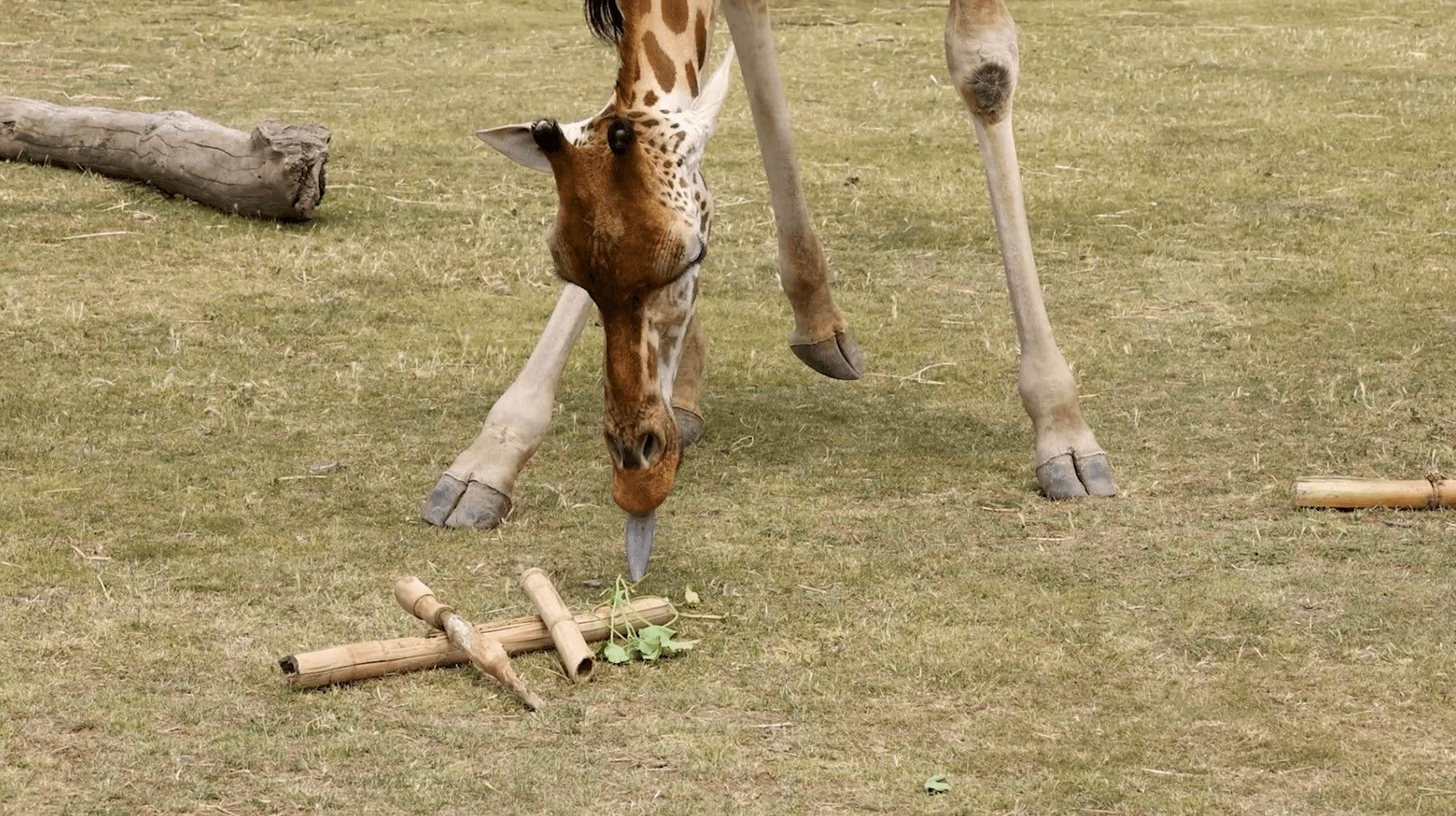Zookeepers worldwide know that many of their animals appreciate herbs in the diet, or sometimes just to play with or roll in. One zoo has decided their charges will like it even better if the herbs are fresh and in season, and have built a garden of 200 types to keep them happy.
Most zoos have come a long way from the days when they stuck animals in cages so small, frustration and boredom shortened their lives. Now keepers spend as much time worrying about the mental health of the animals as their physical needs, constantly seeking ways to keep them stimulated, known as enrichment.
That’s easier for Werribee Open Plains Zoo than for most. Built on the outskirts of Melbourne, the enclosures are larger than for inner-city zoos were land is more expensive. Nevertheless, this is one zoo not interested in merely being good enough, and their latest step for continual improvement is to provide fresh, locally grown produce from their own herb garden.
Giraffes are more used to eating up than down, but when presented with a herb posy this one got so excited it took a foot off the ground to angle itself.
Image credit: Zoos Victoria
“Fresh herbs have amazing fragrances and flavours,” Sue Jaensch, an animal behavior specialist, said in a statement. “But each individual animal and species response and preference can vary. Our goal is to provide experiences that are beneficial for each animal, so understanding individual preferences helps to inform how we can specially tailor these experiences.” Jaensch added to IFLScience that there are physical benefits as well, with herbs being “concentrated in essential vitamins and minerals.”
Matching the herb to the animal gives keepers a form of enrichment of their own. Jaensch told IFLScience it’s not all guesswork. There is an abundance of information from zoos and other sources on what herbs certain animals like, and can consume safely. “We also use information from natural history and observe the animals’ curiosity, expanding their choices,” she said. What is novel is the freshness of the produce, not the items given.
There’s enough information around about herbs’ effects the team are not worried they will accidentally poison any of their precious beasts. However, Jaensch told IFLScience some foods are given with care. “Mint and rosemary may be stimulating for some animals, so we choose the timing. Similarly for catnip, which we give intermittently.”
Speaking of catnip, the zoo’s serval is just as keen as other members of the cat family. Research has shown the plant deters mosquitoes, explaining why cats big and small evolved an appreciation of it, but Jaensch admits to not knowing why other animals are not similarly fond of its protection.
It’s not just mammals that like some fresh herbs in their diet, so does this shingleback.
Image credit: Zoos Victoria
So many of the herbs have flowers that need insect pollinators that beds will boost the ecosystem all year round. Jaensch hopes visitors to the zoo will be similarly inspired. “Planting umbels, a family of herbs including parsley, coriander and dill, is a fantastic way to encourage and attract pollinators and insects into your backyard,” she noted in the statement.
Not all the animals are similarly keen, with one white rhinoceros turning up its substantial nose at an entire posy of herbs. There’s little the keepers can do in this case – you try changing a rhino’s mind when it’s made up.
On the other hand, as the film below shows, one giraffe was so keen on some herb pesto it made the considerable effort of leaning down and balancing on three legs to get its enormous tongue around it. The shingleback lizard seems enthusiastic as well. So far, the zoo has no plans to sell the herbs in their gift-shop, but if they do, they could market some lines with animal endorsements.
The strangest reaction so far came from a camel, who responded by showing off the astonishing dexterity of its lips to their full extent. Jaensch admitted to IFLScience, “We don’t know exactly,” what the reaction means, but she added, “In this case he didn’t go back to the food. He may have tasted something he didn’t like or found irritating. This could be the camel equivalent of someone pulling a face.”
Source Link: Zoo Builds A Herb Garden To Enrich Its Animals’ Lives
